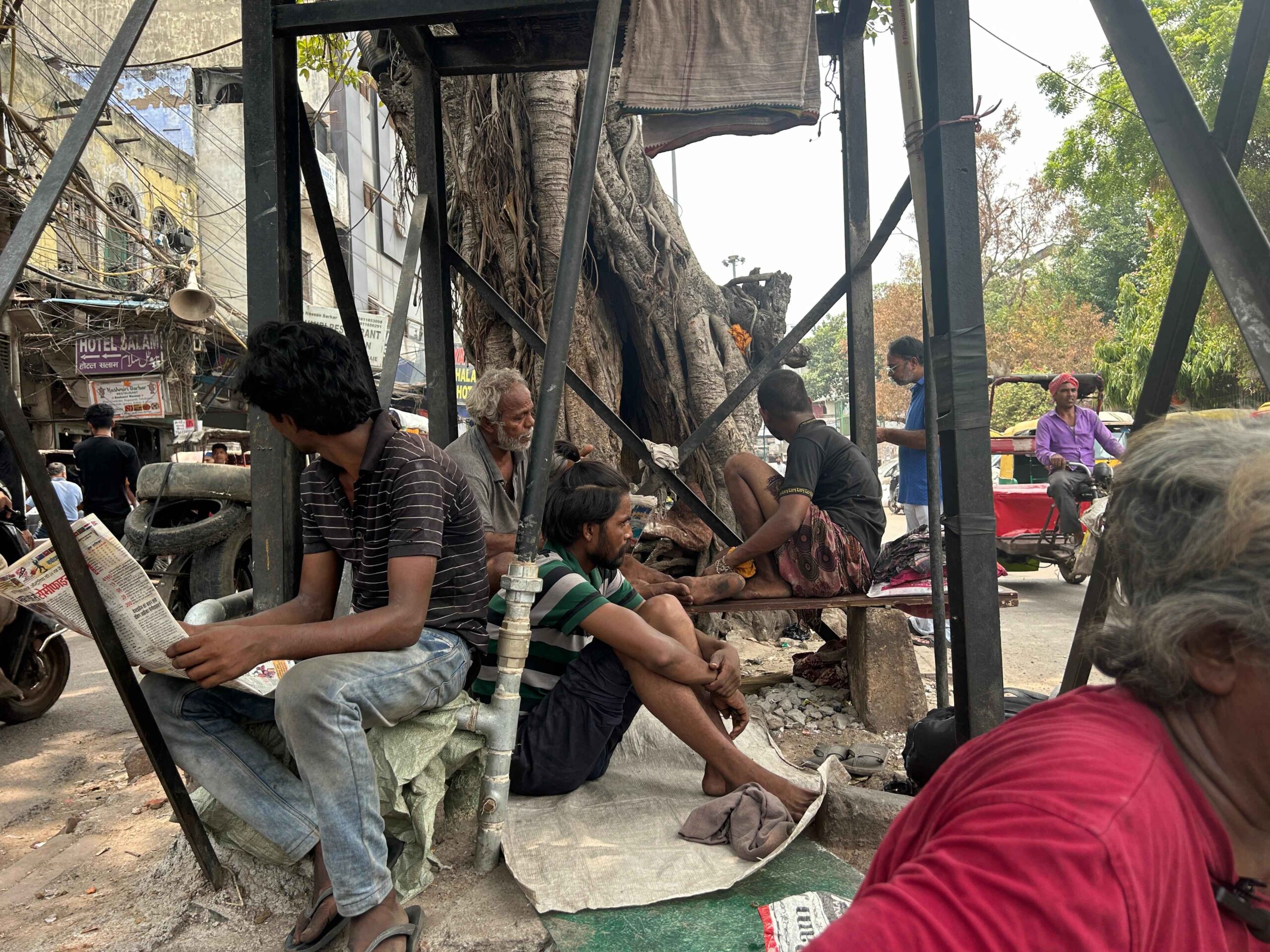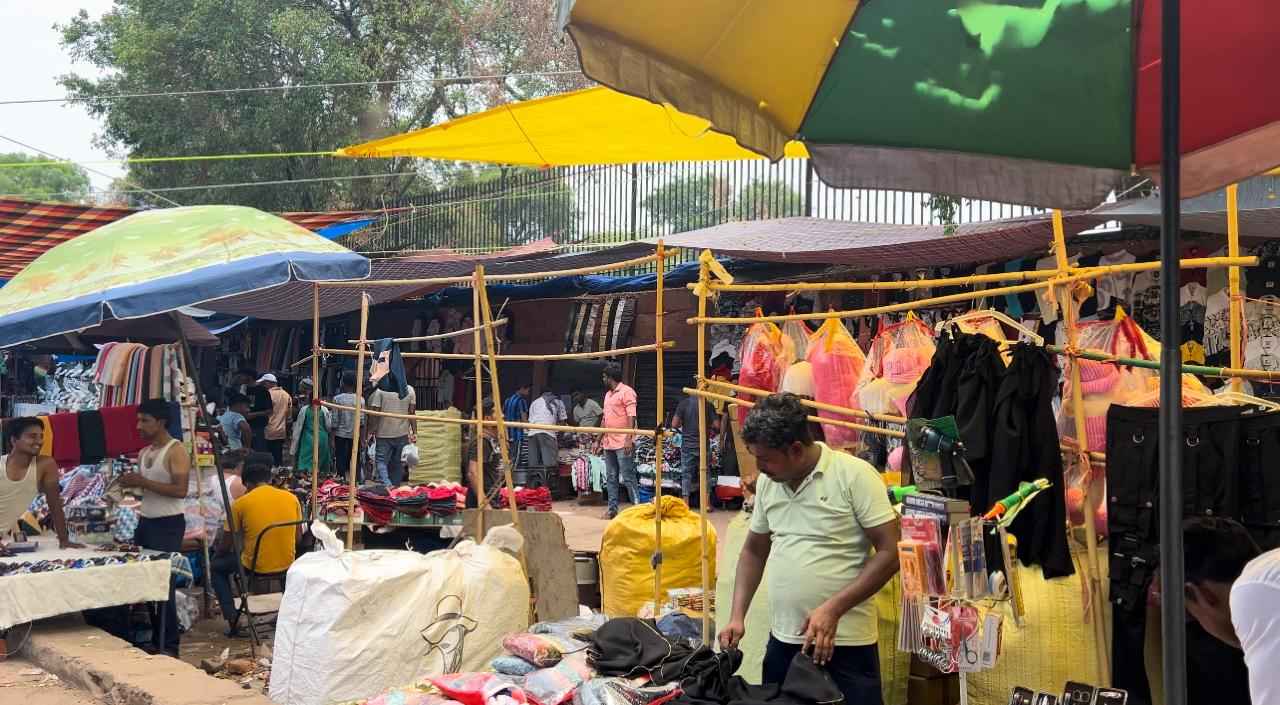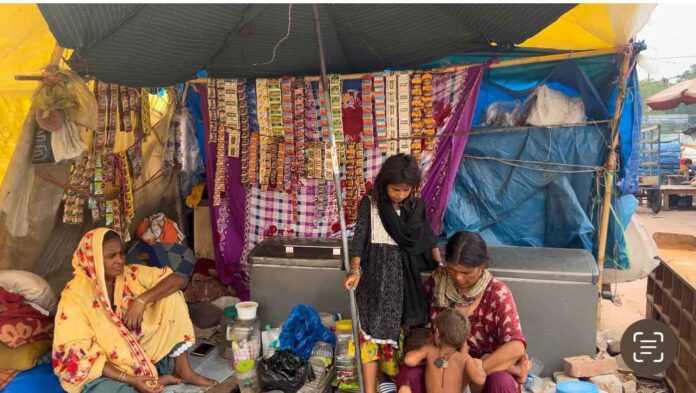Tauseef Ahmad and Abdul Basit
New Delhi: Homeless women in the national capital are grappling with an unprecedented challenge: safety. They have been unable to sleep for months due to heightened fears of harassment on the streets.
One such woman, Sehrish (name changed on request), aged 28 and a mother of two children, said she has spent the past month staying awake at night out of fear for herself and her children.
“Every day, we hear about cases of children being abducted or women being harassed. But what can we do? We have no choice but to live among these overcrowded streets,” she told TwoCircles.net.
Seeking refuge with her two children, originally from Rajasthan, the woman shared her struggle to find sleep during the day amidst the oppressive heat and humidity. At night, fear grips them.
“There are places like public parks where we can seek refuge, but the threat of harassment there is even greater than on the streets. Just recently, on June 11, I witnessed men attempting to abduct a girl. We managed to intervene and rescue her, but it is a constant fear that it could happen again,” she added solemnly.

Weather Vulnerability: Battling Extreme Heat
The weather is not just adding to their daily struggles; it is also heightening health risks among them. Many are suffering from heat-related illnesses such as dehydration, further complicating their lives.
“The daytime weather leaves us breathless. We have no choice but to seek shelter from the sun. In the evenings, we gather in public places in groups to protect ourselves from any potential harm,” shared Mohammad Rafiq, 43.
He also lamented the loss of five men last month due to the intensifying heat waves. Their families were denied the opportunity to see or perform their last rites.
Ruksana Thakur, 48, a widow from Agra, spoke about the numerous instances of harassment she has allegedly endured, yet never reported to the police out of fear of becoming entangled in legal complexities she cannot afford.
“Every degree rise in temperature makes us more vulnerable to harassment, verbal abuse and more. This year, as temperatures soared to 52°C during the day, I often felt breathless,” she shared.
She lamented the harsh realities of living in Delhi, where even basic necessities come at a cost. “Drinking water from a street vendor costs Rs 2, bathing Rs 20 and using a toilet Rs 10 each time,” she explained.
She went on to describe the multiple challenges faced by the homeless, from enduring heat waves to surviving floods, heavy rains and cold spells on the unforgiving streets. Just last month, she tragically lost her son to illness, unable to afford adequate healthcare.
“Doctors only prescribe medicines we must buy from private pharmacies,” she added, highlighting the financial strain.
Despite these hardships, Ruksana holds onto hope. “We cling to the hope that one day we will find shelter and sleep peacefully with our children,” she said, with unwavering determination.
Understanding Delhi’s homeless women
Homeless women in Delhi are not born into homelessness but often find themselves on the streets due to various challenges such as harassment, domestic violence and other difficult circumstances, particularly prevalent among those from Muslim backgrounds. These women can be seen begging near railway stations or sleeping on station stairs or streets.
While a significant number are from Muslim backgrounds, others come from diverse backgrounds, including sexual minorities and other religions.

Insufficient shelter options
Government shelters, managed by the Delhi Urban Shelter Improvement Board (DUSIB), fall far short of meeting demand. With only around 16,000 beds available, they cannot accommodate the estimated homeless population of 200,000 to 250,000.
“Staying in these shelters is often worse than sleeping on the streets. The coolers don’t work, overcrowding is common and the lack of secure shelters forces many to sleep outside, making them vulnerable to harassment,” said another young woman.
Despite these challenges, homeless women show remarkable resilience. Some resort to pouring water on themselves to stay cool, while others rely on public taps for drinking water.
Impact of climate and violence
A study by the Asian Development Bank, spanning India, Pakistan and Nepal (2010-2018), revealed alarming trends. For every 1°C rise in average annual temperature, there was a more than 6.3% increase in physical and sexual violence against girls and women aged 15-49.
In India specifically, intimate partner violence rates were the highest among these countries, escalating by 8% for physical violence and 7.3% for sexual violence with each degree of temperature rise.
Activists advocate for gender-sensitive housing policies that protect vulnerable groups, including survivors of domestic violence, widows and those from minority backgrounds. These policies must ensure equitable access to resources and protection from gender-based violence.
As the sun sets, homeless women like Sehrish and Rukhsana brace themselves for another restless night. Their struggle for survival persists amidst the relentless heat and pervasive threats.


